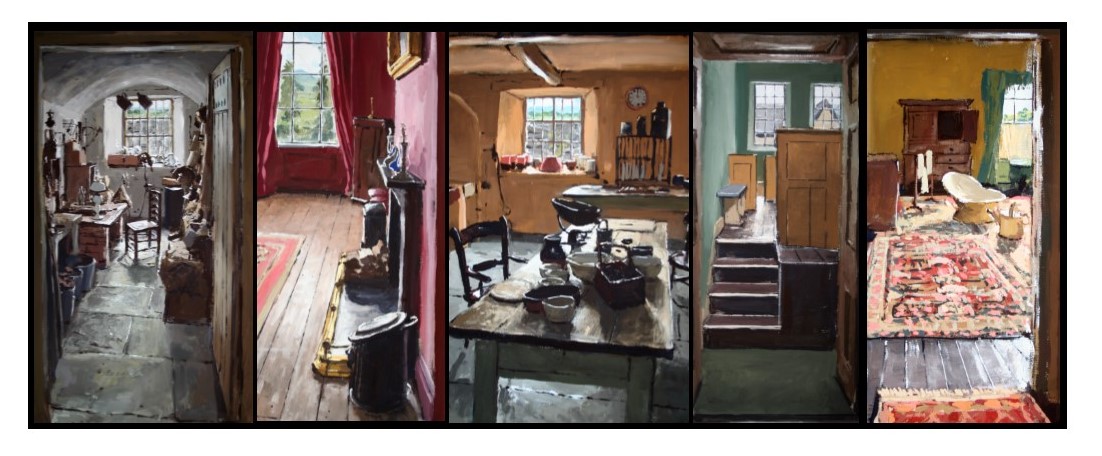The name given to the tight trousers worn by some Regency gentlemen, such as the notorious Beau Brummell and his ‘dandy’ followers, as they showed off their leg muscles.
If you come my way…
In Summer 2023, pupils from our two local schools – Presteigne Primary School and John Beddoes High School – joined museum staff on a creative journey through some of the rooms, objects and stories at the museum. Led by professional writer, Emma Beynon, they explored their feelings and responses to these objects and moments from the past through creative writing.
This exhibition shows their work, along with the objects and rooms that inspired them. Hear the tale of Sarah Chandler, transported to Australia for forging just three £5 notes, or the brave farm labourer, William Davies, who fought and died in the Crimea fighting for Queen Victoria. Look further into the lives of the POWs who lived at Camp 48, Presteigne, during World War II. Imagine yourself as a piece of furniture in the Judge’s Dining Room, or surround yourself with the sounds of the busy kitchen below. Read the incredible set of poems ‘If you come My Way’ – a collection of works to welcome refugees to the area.

